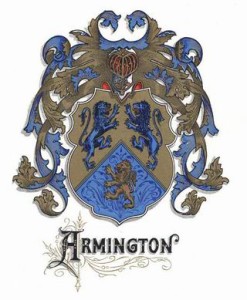
Pardon Armington was born on February 10, 1836 in Pawtucket[1]. He was the son of Pardon Handy Armington and Mercy Hamblin Burse. He married Rebecca Long Boardman on November 21, 1859. They had two children: Alice Armington on August 21, 1860 and Francis Boardman Armington on June 27, 1864. In 1864 he was one of the founders of the Bethany Encampment of the Masons in Lawrence, Massachusetts[2]. In 1866 he was elected Mayor of Lawrence, Massachusetts[3][4][5][6]. In 1873 he was one of the founders of the J. C. Hoadley Company in Lawrence, Massachusetts and owned 20% of the company. He met Gardiner C. Sims who was the superintendent of the J. C. Hoadley Company and formed a partnership for manufacturing steam engines[7]. The the J. C. Hoadley Company was out of business by 1879. In 1883 he was part of the group that organized the Armington & Sims Engine Co. in Providence, RI where he was the treasurer[8][9]. He died on September 22, 1901 in Chatham, Massachusetts.
Patents
244,160 Valve for Steam Engines
330,767 Lubricator (Armington & Sims Engine Company)
330,768 Lubricator (Armington & Sims Engine Company)
370,440 Piston Valve
370,443 Piston Valve, September 27, 1887
378,642 Cut-Off Piston Valve, February 28, 1888
References
1) The family of Joseph Armington in America, 1713 to 1994, Albert Arthur Armington, 1994
2) The Freemasons’ Monthly Magazine, Charles Whitlock Moore, 1864
3) History of Lawrence Massachusetts, with with Portraits and Biographical Sketches, H.A. Wadsworth, 1880
4) History of the City of Lawrence, Jonathan Franklin Chesley Hayes, 1868
5) Inaugural Address of Hon. Pardon Armington, Mayor of Lawrence, Delivered by Pardon Armington, Lawrence (Mass.), Mayor, 1866
6) Municipal History of Essex County in Massachusetts, Benjamin F. Arrington, 1922
7) Transactions of the American Society of Mechanical Engineers, American Society of Mechanical Engineers, 1888
8) Acts and Resolves passed by the General Assembly of the State of Rhode Island and Providence Plantations at the May Session 1883
9) Rhode Island: Three Centuries of Democracy, Charles Carroll, 1932